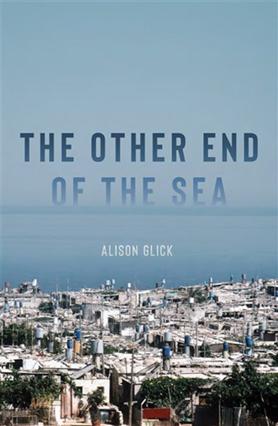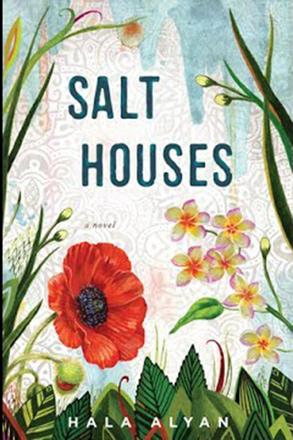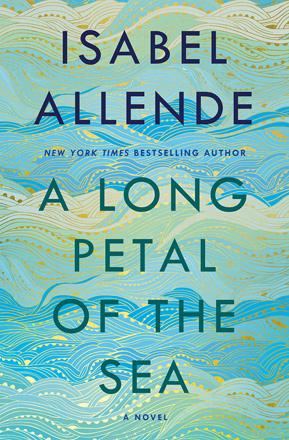You are here
Buffeted by history and politics
By Sally Bland - Jan 30,2022 - Last updated at Jan 30,2022

The Other End of the Sea
Alison Glick
US: Interlink Books, 2022
Pp. 253
This is a love story with more than one twist. Nothing is completely standard or expected, whether the characters, setting, plot events or conclusion. “The Other End of the Sea” is American writer Alison Glick’s first novel, and she bases it largely on her own experience living in Palestine and Syria in the 1980s and early 1990s.
Added to this reality-based origin, Glick’s fluid writing style, intense imagery and particular alertness to body language encourage visualisation of the scenes in the novel, while her thoughtful and sometimes ironic tone prods one to ponder the themes she raises, which range from the struggle for justice to the perils and promise of connecting the personal and the political. At other times there are downright funny episodes.
Rebecca Klein, a young American who is motivated by her father’s Jewish roots to visit Israel, staying with a middle-class family in Haifa and later on a kibbutz, tells the story in the first person. Her own family’s open-mindedness makes her all the more sensitive to the anti-Palestinian racism expressed by Israelis she met, and she begins to seek out the other side of the story. Returning to the US, she embarks on a history degree; when she graduates, she seeks a position at the Friends School in Ramallah. “So it was that Palestine revealed itself to me in layers.” (p. 19)
One soon discovers that the novel traces not just a series of events but a growth trajectory for Rebecca. Arguably, it is also a growth trajectory for Zayn Majdalawi, the charismatic Gazan she meets, marries, and has a child with. Yet, it is also clear that the pivotal period of his life is the fifteen years he had spent in Israeli jails.
Drawn together by overlapping political views as well as magnetic attraction, Rebecca and Zayn spend more and more time together, as he takes her off the beaten track in Gaza, introduces her to family and comrades, and includes her in his discussions with Israeli leftists. Then the first intifada erupts, eventually leading to the end of her teaching job when the occupation authorities close schools.
Soon she is spending most of her time in Gaza, researching and writing human rights reports for locally based NGOs. “My becoming acquainted with Gaza was like the blossoming of a romance — the more I saw and got to know, the more I wanted to know.” (p. 50)
There are a lot of hard facts packed into this book, including a first-hand look at the abuses of the Israeli occupation, Palestine’s history, milestones in the first intifada, and the 1990 US war on Iraq, but what makes it special is the less tangible, less quantifiable insight into Palestinian culture and the meaning of commitment and family. While Gaza is often dismissed as a miserable place, Rebecca tells us how Gazans create beauty, meaning and fun out of nothing. Zayn seems to her an extraordinary person: “A man who had not let the devastating, scarring events of his life so far narrow his vision of the future.” (p. 60)
The time spent in Gaza is the couple’s happiest and most satisfying, personally and politically, in great part because they are part of a tight-knit community sharing common goals. But the occupation authorities’ relentless pursuit of Zayn, due to his leadership role, makes him decide to go into exile and they end up in Syria, living in Yarmouk Camp on the edge of Damascus. From then on, the impact of exile on the individual’s psyche and ability to struggle for his/her ideals, looms large among the novel’s themes, speaking to an issue common to countless Palestinians, refugees and immigrants the world over. In Zayn’s case, Rebecca felt he was coming unmoored: “He had begun to float away”. (p. 152)
Despite mutual joy at the birth of their daughter, the couple’s relationship continues to deteriorate due to frustrating work and living conditions in Syria. What remains, however, is abiding respect. Despite her frustration and frequent anger, Rebecca continues to regard Zayn as an “intelligent, complex, essentially good-hearted person whose life had been buffeted by history and politics”. (p. 223)
“The Other End of the Sea” is not a lament over lost love or a romance gone astray. Rather, it is a window for reflecting on what ties us to other people: Political agreement? Similar culture and life style? Similar ideas about home and family? Respect for the other’s independence? Or is it a yearning to experience something new, to cross over into another culture? A different way of life? To join their struggle for freedom? The forward-looking perspective of the novel is reinforced by the ending, when Rebecca’s and Zayn’s daughter crosses into Palestine as a young woman.
Related Articles
In “Chaos of the Senses”, Algerian writer Ahlem Mosteghanemi tells the story of a great love (or loves), with a tantalising twist. The man with whom protagonist and narrator Hayat falls in love is a character in a short story that she has written.
Salt HousesHala AlyanNew York: Mariner Books, 2018, 310 pp In “Salt Houses”, Palestinian-American author Hala Alyan follows four genera
A Long Petal of the SeaIsabel AllendeTranslated from the Spanish by Nick Caistor and Amanda HopkinsonNew York: Ballantine Books, 2020Pp.















